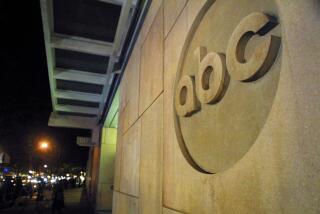Apple Plans to Lay Off 150 in Garden Grove
- Share via
Apple Computer Inc. will lay off 150 temporary employees at its Garden Grove assembly plant this month as the computer maker continues its automation of the facility, an Apple spokeswoman confirmed Thursday.
The mid-February layoffs will bring to 850 the total number of temporary employees who have lost their jobs at the Garden Grove plant since last summer. Another layoff, affecting an as yet undetermined portion of 145 temporary positions, will take place in March, said Kathleen Dixon at the company’s headquarters in Cupertino, Calif. Dixon said the layoffs are permanent.
For the record:
12:00 a.m. Feb. 6, 1985 FOR THE RECORD
Los Angeles Times Wednesday February 6, 1985 Home Edition Business Part 4 Page 2 Column 3 Financial Desk 1 inches; 23 words Type of Material: Correction
An article on Feb. 1 gave the incorrect corporate affiliation of Aharon Orlansky. Orlansky is a securities analyst with Sutro & Co. Inc., a San Francisco brokerage.
The plant now has 661 employees involved in the assembly of keyboards and “mouse” devices for Apple computers. The plant’s 366 permanent employees will not be affected by the cutbacks, she said. Apple has 5,636 employees worldwide.
A $1.5-million automated production line will assume the work of the 150 workers to be laid off this month. Those jobs involved the assembly of keyboards for Apple’s portable home computer, the IIc.
Apple officials said the move reflects its commitment to automation and will increase productivity at the Garden Grove plant. “We want the most efficient means of production we can get,” Dixon said.
Analysts said Apple has increased its use of automation to protect its profit margins in the face of heavy price cutting and competition from foreign products. In recent years, many high-technology companies have transferred assembly work overseas to take advantage of lower labor costs.
In December, 1983, Apple began production of its Macintosh computer at a $20-million state-of-the-art assembly plant in Fremont. About 95% of the plant is automated.
Apple’s decision to automate production facilities is the “cornerstone of its long-term strategy,” said Aharon Orlansky, vice president of high-technology research at Montgomery Securities, a San Francisco-based brokerage.
Apple plans to remain competitive in the future “by driving down the cost of manufacture,” he said. “They will then have more money to spend on the other things, like marketing.”
Orlansky said Apple would rather have its plants close to home, “instead of using (overseas) production facilities that are far away and hard to control.”
John Girton, a securities analyst with Birr, Wilson & Co. in San Francisco, said more companies will be following Apple’s lead. “If they want to be efficient in the U.S.,” he said, “they will have to use more robotics and automation.”






